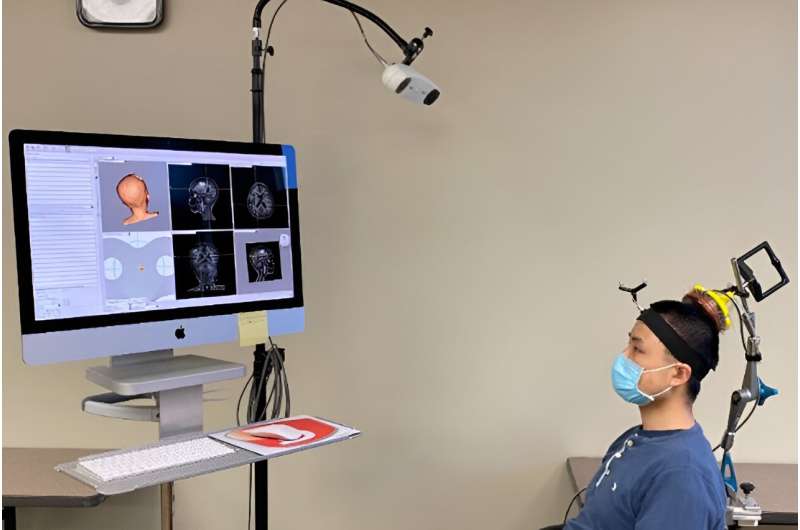In a groundbreaking development, leading neurosurgeons predict that brain surgery utilizing artificial intelligence (AI) could become a reality within the next two years. This cutting-edge AI technology, developed at University College London, promises to make brain surgery safer and more effective, marking a significant leap forward in the field of healthcare.
Trainee surgeons are currently collaborating with the new AI technology to master the intricacies of keyhole brain surgery. This innovative system has the capacity to highlight minuscule tumors and critical structures such as blood vessels nestled deep within the brain.
Traditional brain surgery is an incredibly precise and painstaking endeavor. A mere millimeter deviation from the intended path could prove fatal for the patient. Particularly delicate is the avoidance of damage to the pituitary gland, a grape-sized structure at the brain’s center, which regulates the body’s hormones and can lead to blindness if harmed.

The AI system has rapidly advanced, having analyzed over 200 videos of pituitary surgery in just 10 months. This is an expertise level that would typically take a human surgeon a decade to achieve. Professor of Neurosurgery at University College London and leading neurosurgeon, [Surgeon’s Name], emphasized, “Surgeons like myself, even with considerable experience, can, with the assistance of AI, perform with greater precision when identifying these critical boundaries.”
The potential is remarkable, as Professor [Surgeon’s Name] added, “In a few years, we could have an AI system that has observed more surgeries than any human ever could.”
Trainee Dr. Nicola Newell, who has been working with the AI system, attested to its value in training, stating, “It helps me orientate myself during mock surgery and helps identify what steps and stages are coming up next.” She further highlighted how AI enhances productivity, likening it to becoming a “Marvel superhero version” of oneself.

The advent of AI in brain surgery has far-reaching implications for healthcare. It not only augments the capabilities of seasoned surgeons but also aids trainees in acquiring skills at an unprecedented pace, promising better patient outcomes and a safer surgical environment.
The UK government has welcomed this pioneering AI technology, recognizing its potential to revolutionize healthcare in the country. Describing it as a “real game-changer,” officials are optimistic about the broader impact of AI in the medical field.
This breakthrough signifies a promising future for healthcare, offering the possibility of safer, more precise, and efficient brain surgeries, ultimately benefiting patients and medical professionals alike.
Resources:
1.https://www.bbc.com/news/health-66921926
2.https://www.healthcareitnews.com/news/emea/nhs-trials-ai-enabled-software-make-brain-surgery-safer
3.https://www.youtube.com/watch?v=fdJJBNHY4bA
4.https://www.mdpi.com/2072-6694/13/19/5010